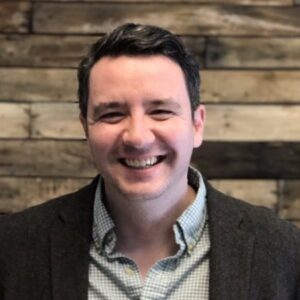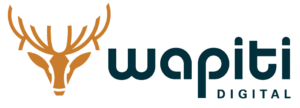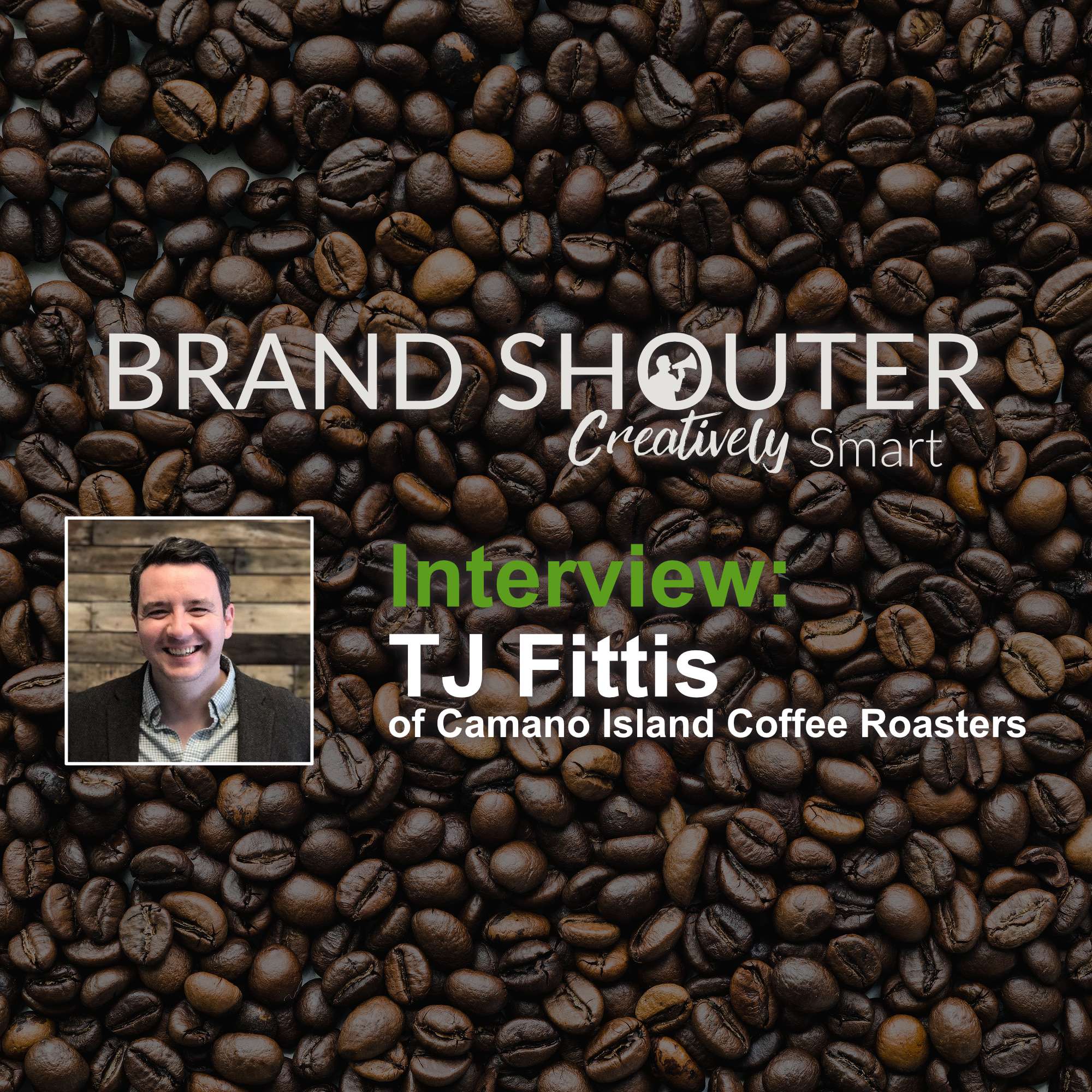TJ’s Bio from LinkedIn:

Most people have never REALLY tasted coffee before — that’s why I work at Camano Island Coffee Roasters.
My mission is to share delicious, fresh-roasted coffee with those afflicted by burnt, stale coffee.
It’s been a fun journey at Camano Island Coffee Roasters. I started with the company in 2011 and through a series of “growth-hacking” marketing tactics doubled our subscriber base in 2012. In 2013 I led the Buzzbox Coffee project which increased our subscriber base by another 50%. Using everything we learned over the previous two years I led the project that codified our proprietary subscription system. Finally, in addition to my marketing and e-commerce responsibilities, I took over the day-to-day operations of Camano Island Coffee Roasters in 2015.
As a natural “perfectionist” I’ve learned the hard lesson of testing an idea before building it, and in the words of Guy Kiyowsaki, “Entrepreneurs ship.”
The most surprising thing about me is I grew up in Northern Ireland. Yes, I lost my accent, but when I chat with my family it comes right back. And, yes, I’ve heard the blast of a hand grenade. I’ve never really been in any danger though — except for a couple of times when I was nearly mugged, but hey that can happen anywhere, right? Thankfully today, “our wee province” is mostly free of sectarian violence. Between my protestant family and my catholic friends, I’ve learned to listen to all sides and make fair, calm, and logical decisions.
I love living on Camano Island in our small, blue, log cabin with my beautiful wife, Destiny (yes, I know she was my destiny — everyone tells me), our daughter, Sophelia, and our two dogs, Charlie and Joey.
In the next few years, I look forward to sharing the finest, uber-fresh coffee with the “charcoal chuggers” of America. If you suffer from the ashy swill of today’s run-of-the-mill cup o’ joe, give our incredible coffee a shot.
The Interview:
Dan: I’m sitting here across the table at Camano Island Coffee Roasters International HQ across from TJ Fittis. TJ Fittis is someone that I’ve known for a long time. I wanted to interview him because he has a fun position in a fun company. TJ, welcome to the podcast.
TJ: Thanks for having me.
Dan: I want to start off with some basic questions, but before I do: The purpose of all of my podcasts, whether I succeed or not is to provide at least one, if not multiple, usable pieces of information that any business person can apply today to their business to offer a better service/product and, in the long run, make more money doing what they love to do.
So with that in mind, we’ll start with some of the basic questions. Tell me a little bit about the company. How long have you been here?
TJ: This October is my anniversary of having been here for seven years. I actually didn’t start out in this current role. I kind of worked my way up within the company. I started off doing marketing. We’re a little bit different here at Camano Island Coffee Roasters. Most coffee roasters are wholesale-driven. They have big wholesale contracts – whether that’s restaurants or hotels or coffee shops, or grocery store contracts. They are roasting big batches for big clients. What we do is a little bit different in that we have focused on what is typically a secondary offering for most coffee roasters: coffee subscriptions direct to consumers. What we’re doing is bypassing the grocery store altogether, cutting out that middleman markup, and then passing savings on to our coffee subscribers, essentially our members. So we’re a little different in that regard. We might get 10 new members in a day. For any other coffee roaster, if they had 10 new customers, they would probably go out of business. We have thousands and thousands of members across the country that enjoy our coffee. Starting out in marketing even though my role has changed, my goal from day one has been to acquire new, individual direct-to-consumer coffee subscribers for our membership. That’s still my number one goal today as the general manager who oversees the entire business.
Dan: Do you continue to have the predominant role in the marketing for Camano Island Coffee as well?
TJ: I am. It’s a small family-run company. I actually wear a couple of different hats. I’m basically the marketing manager as well as the main guy for sales. I’m also directly hands-on in the e-commerce project management of the company. So if you think about our product being coffee subscriptions more than just the coffee beans themselves, there’s a whole gamut of programming and systematizing has to go into that to support that product. We’ve actually spent quite a bit of time and money in customizing our e-commerce platform to provide our members with their own unique set of options. So in that regard, we’ve had success and some failure there and some different projects that we’ve done there where we’ve maybe bit off more than we could chew and some. The side effect of that is that we have a unique position in the market and tremendous amount of flexibility and options available to coffee subscribers that your run-of-the-mill coffee subscription company doesn’t have.
Dan: A little back story, Camano Island Coffee has taken a little bit of a journey through the subscription process. TJ, are there any tips or lessons that you could share with the listener.
TJ: Yeah, I think that there’re two main lessons that I learned specifically through this process. We were in this proprietary, closed source e-commerce platform up until about four years ago. Most of the history of the company, which has been around 20 years now, was basically locked into that one system. We transitioned to WooCommerce which is an open source plug-in for WordPress. It’s a great platform that scales really well, that’s not to say that there can’t be growing pains with it – especially if you’re customizing a lot of the codebase. But it’s been a great platform for us. Early on there were some growing pains with trying to normalize all the data.
The things that I’ve learned in my current role are two-fold. One is focus. As I mentioned before we think differently with coffee and have all kinds of new things we want to try all the time. Sometimes we can lose the discipline to stay focused on what we know works. Then the other thing I’ve learned is doing too much internally just because it is a small family-owned business. There isn’t a budget to just outsource it to somebody else. You have to do a lot of the work yourself.
I don’t think that is necessarily a terrible thing. I think that’s kind of one of the joys of working at a small business. You get to try lots of little different things. You’re never going to become a professional, but you get to have a broad spectrum of things you get to try and work on. I think, when it comes to your core product offering, having some expertise there is really important. We wouldn’t have been able to get across the line with WooCommerce successfully if we hadn’t had some outside help to get that done right.
WordPress has this famous five-minute install, right? So you can spin it up and get it ready to go.
Dan: And if you’re a blogger, that’s fine, right?
TJ: Yeah, it’s great. But when you have thousands of existing members who are expecting to get their coffee shipped out tomorrow, and then all of a sudden their orders aren’t generating, then you’ve got a really big problem. It’s a great platform if you’re starting with a clean slate. If you’re transitioning then there’s all this other work that has to go with that. The two things I’ve learned is staying focused on why people buy from your company. Also, getting some expertise and some outside help, because you don’t know what you don’t know. I think particularly, using the WooCommerce transition as an example, having some outside help was important.
Dan: TJ, you have a large role within this company. I’m interested in what your personal goals are? What things motivate you. Where do you see yourself in 10 years within this organization? Where do you see yourself in your personal growth?
TJ: I think it’s one of those things where even as a kid, it’s like “what do you want to be when you grow up”? Or you get a little older and it’s like, “Okay. What are you going to Major?”
Dan: I wanted to be a veterinarian.
TJ: It’s like you always have these kinds of really big loaded questions that are asked and at different stages in your life. You don’t know what the answer is and you feel a lot of pressure. As a kid and as a teenager going into college, you have to figure this out. The reality is, I think, as long as we’re moving forward – as long as we’re doing something – the answer kind of reveals itself with time. Using Camano Island Coffee as an example, I started working here because I had a background in sales.
I did sales through college and had some subscription sales-specific experience. Also, I like writing, marketing, photography, and kind of the whole art process of things. Basically, talking about what we do with the coffee. I love coffee too but that seems to be a prerequisite, right? When I started working here, I loved getting to work in the coffee industry, getting paid to talk about coffee all day long, and making enough money to take care of myself and my family. That’s kind of the basics of my intentions going into it.
Within two or three years I got to that point where I realized that I’m this working marketing professional that specializes in selling coffee. Then there were some changes in the company and some folks retired. The next thing I know, I’m one of the most senior people at the company. With it being a family-run company, I got to take this and run with it. I never went into it thinking, “I’m going to run the coffee company.” It just kind of happened that way.
Three years ago is actually when I took over as the general manager and honestly, as far as my day-to-day, there are few things that changed. I built some new systems for the operation side and the sourcing side of coffee. Other than that, after some cleanup, my job kind of went back to what it was before: mostly marketing, so it’s amazing.
Dan: It’s amazing when a company is being focused on properly. It’s amazing the role that marketing plays in a company. That’s partially the reason why I’m even doing this podcast. So many business owners, managers, or marketing staff can use support, help, and community. Hearing how you suddenly rose to an important position, not necessarily expecting to, can be really inspiring.
So you’ve kind of talked about some of the challenges of the organization and also for you personally in your role. What is one of the larger challenges that you faced in your seven years with Camano Island Coffee?
TJ: Yeah. We kind of touched on the overarching goal or struggle within the company: the constant conflict over how to get new memberships. Coffee subscriptions are generally looked at negatively. People are afraid that once you get in, you can’t get out. One of the things I also oversee is customer service. I’ve had told my customer care team that they are the eyes and ears of the company. I want to hear what customers have to say. From that, we were able to make little tweaks here and there to improve member satisfaction and hopefully lower our attrition rate. Which, within the subscription industry, you have an expected lifetime. I’m happy to say we have some members that have never quit. They’ve been with us for ten plus years and I think it’s a testament to the quality of the service and also quality of the coffee.
As for the challenges that I’ve had, we’ve talked about eCommerce. Just this year, a specific challenge has been working on our cost per acquisition from a digital marketing standpoint – as far as digital ad spend, whether it’s Google pay-per-click or Facebook advertising. There are so many different ways you can approach that and part of it is having the right expertise to know how to spend the dollars. It’s not just the ad creative or the targeting or any of the analytics. Sometimes it’s knowing what to target specifically, how to run the ads, when to turn them on/off, or when you just leave it alone because maybe you’re on the right track. Recently, I’ve run into that. Some were really working and I realized that I had forgotten to do something with the ad so I “fixed it” and then it broke.
One of the things I’ve learned recently, coming back to the customer service angle, we do a really great job of grabbing great reviews on Facebook specifically. Members love our coffee and love our customer service. But it’s funny how, in the things that you think you’re strong, you can sometimes overlook really obvious things you should be doing. This year, we’ve actually kind of doubled down a little bit on that. We had some new promotions that we’ve looked to grow our membership base through our existing members.
Dan: Referral Marketing?
TJ: Referral Marketing, yeah. For years we’ve done really well word of mouth. This year, we specifically took a different approach. How do we further the conversations with our members? I think it’s kind of obvious, right? You already have these members that love you and your coffee and what you do. Why wouldn’t you be talking to them first? So often, it was like, “let’s just go find new members.” Obviously, the cost per acquisition is way higher that way because they don’t have any clue who you are.
Dan: It’s amazing how many people I’ve talked to that have that exact same problem. Especially for smaller businesses, that seems to be an issue: to remember to gently, not pushy, pitch yourself to your existing clientele – whether you offer them incentives or not. If your product’s good enough the incentive doesn’t even matter. It’s like saying “Hey! By the way, we’re here! Tell your friends!” and you can grow your business purely on word-of-mouth – substantially. Especially when you have a base like Camano Island Coffee does.
TJ: It’s one of those things too where people are drinking our coffee every single day, so they’re thinking about us. We’ve always talked about having a really robust rewards program. With the budget and time that we have, I could try to go in there and build it myself and have it only work half the time, or I can work within my budget and have the guys that really know what they’re doing build out this system. We don’t want to wait for that. So we came up with this way of doing member rewards without having all of the back-end systems in place.
This year we launched our member sweepstakes where we randomly select certain members for what we call a roaster special, which is just experimental coffees. They’re coffees that our roaster was playing with. We did our Colombian dark roast, which we had not done before. The Columbian we have is more of a medium roast and it’s a specialty, niche coffee. That was something different that we do. We selected 25 members to randomly receive these and then they give us feedback on it. One of our coffees that did really really well was this Brazil medium / Papa New Guinea medium blend. Camano Island Coffee Roasters doesn’t do a lot of Blends because we try to share the “taste of place.”
We are predominantly a single origin coffee roaster. So you get to taste the flavor profiles of each of the countries and certain countries are known for certain flavors. As an example, Ethiopia, which is considered the birthplace of coffee, is known for strong blueberry notes depending on the process.
We tested out this blend within our membership base and people loved it. It’s the “coffee of the month” for this month – Brazinea. It’s been really, really popular. So that’s one of the things we’ve been doing this year is actually rolling out new coffees of the month based on member feedback, which then gives them something to talk about. Like “Hey, this is a coffee I got to sample and be part of a focus group to try it out.”
We’ve also done a number of giveaways. They’ve been really successful on Facebook where they tag a friend who needs coffee and we’ll just send them coffee. Our members have loved it. It’s one of those things where, we know we get word-of-mouth referral. People talk about us all the time, but then you don’t want to be like the “weirdo friend” that’s like Amway multi-level marketing.
Dan: Yeah. It’s kind of amazing how multi-level marketing has actually hurt just general marketing and word-of-mouth marketing in general.
TJ: There’s so many products out there too. Especially on Facebook, it’s like all you get is bombarded with ads, right? I think for our members it was trying to create interesting content that they might want to share.
Dan: Seems like a no-brainer…
TJ: So yeah, that’s basically different competitions and giveaways.
Dan: Before the next question, I just want to throw out there, you mentioned what was it called Brazinea. I typically just get single Origins anymore. But one of my favorite blends that you did special was Guatopia, which I’m a huge fan of the Guatemalan and I like lighter roasted coffee – strong flavor, but light roast. I’m also a big fan of Ethiopian, of the blueberry notes or depending on the region/process sometimes Cherry notes too.
TJ: That is still a very popular coffee. It’s a coffee of the month. So it’s only available for one month out of the year.
Dan: Okay. I’ll have to look for it next time. So a couple of the questions here just to kind of bring it home and then I want to ask some questions about the company that you can use to tell the listener about it. For you personally what brings you the most joy in what you do?
TJ: I am kind of a little odd in my role in that I’m actually pretty introverted and I actually enjoy the day to day work that I do. Whether that is getting a sale – because we do wholesale coffee – or working on new ad concepts or finding a bug in the e-commerce.
Dan: You have joy in finding bugs in eCommerce? You’re an anomaly, my friend.
TJ: Yeah. I just enjoy the day to day work honestly. And of course, talking to new members about coffee, at events or farmers markets or whatever. It always amazes me how many people we run into that are already our members here locally in western Washington. I honestly just enjoy the day to day and I think for me, because of being a small business, there’s a lot of variety and maybe that’s what it is.
Dan: Yeah. I think I’m similar. I don’t think you’re that different in that you’re introverted. I think a lot of business owners are introverted. That’s why we like to hire salespeople and so forth. Although, there is an element of joy that comes from visiting with clients and so forth.
Out of everything we’ve talked about and everything you’ve learned and everything your company has learned, if there was one piece of advice you could offer to other general managers, business owners, and other marketing professionals – what would that one piece of advice be for you?
TJ: I think it’s some of the things we’ve touched on before. It’s kind of twofold. It’s 1 – knowing why people buy your product, which means you’d have to kind of talk to your customers. 2- having a good grasp on what it is that they really love about your product and then just doing that really really well. Really focusing on doing the best you can there. And in support of that, don’t be afraid to branch out and find help in the areas you’re maybe not as strong.
I was an English Lit major – creative writing. One of the principles that they would teach you is: you could literally write the world’s greatest sentence – if it doesn’t fit within the paragraph and the greater piece that you’re working on, you just have to cut it. That’s one of those things that kind of stuck in my mind as I transitioned out of college into the business world. I might have the coolest idea, this thing I really want to work on, but we have to have the clarity of mind to know why people buy from us. In spite of this really cool idea we have, no matter how great it is, if it doesn’t fit or it detracts from why people do business with you, then you have to kind of just put it on a shelf and stay focused on your job – to serve people in the area that you’re working in right?
At the end of the day, you’re really trying to build something that scales and can support a larger pool of customers which, conversely grows your company. At some point, you have to get some real professional help. So that’s where I think some of my successes have been not even my own. I just got out of the way and let the people who knew what they were doing, do it. So yeah, two pieces of advice: focus on the thing that you know that makes you successful and get out of the way when you need to get out of the way.









Nate says:
“…having a good grasp on what it is that they really love about your product and then just doing that really really well. ” Brilliant! Thanks for the good read.